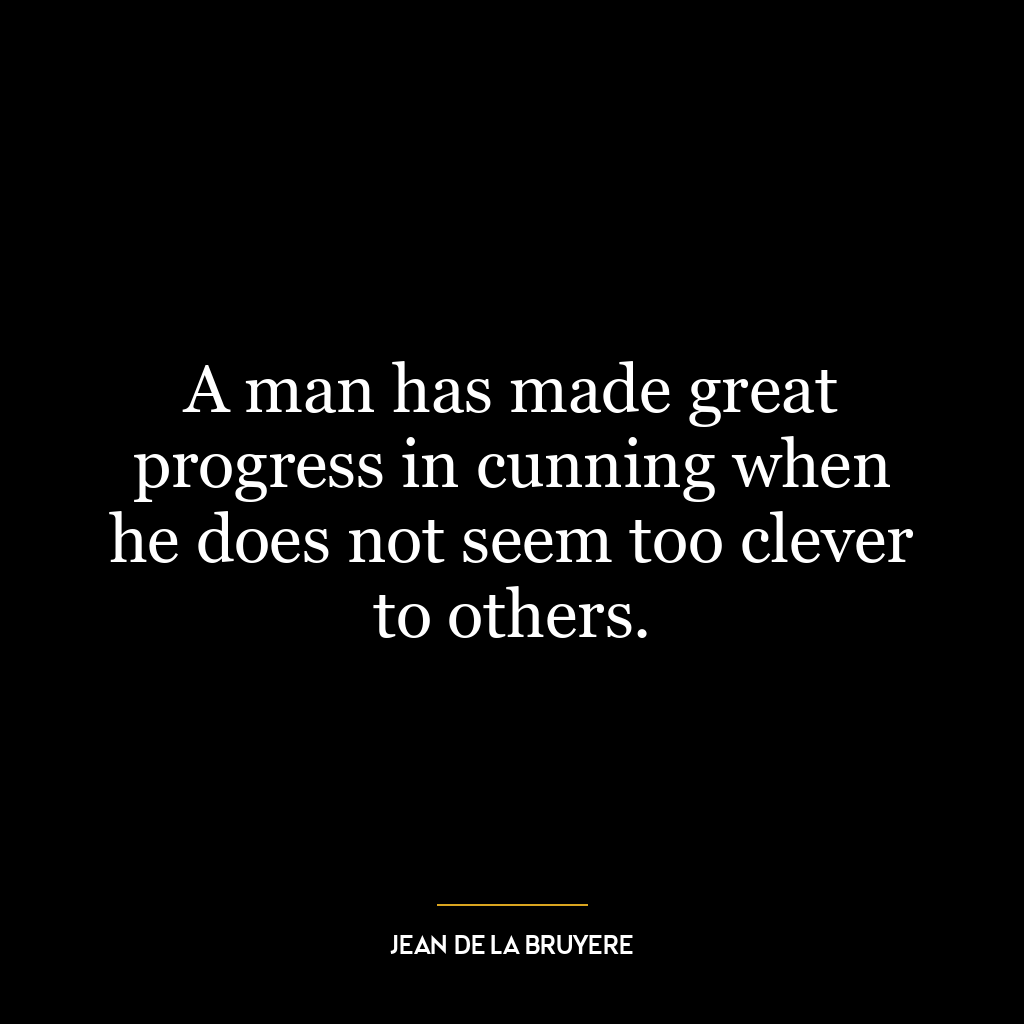The quote essentially suggests that simplicity and a lack of cunning or deceit can sometimes act as a protective shield against manipulation or exploitation by those who are more clever or witty. In other words, if you’re straightforward and not trying to outsmart others, you’re less likely to fall prey to their manipulative tactics.
The term "blockhead" is used here to describe someone who is not necessarily unintelligent, but rather someone who is simple, straightforward, and uncomplicated. The "man of wit" is a person who is cunning, sharp, and potentially manipulative. The quote suggests that the blockhead, in his simplicity, is immune to the man of wit’s deceit because he is not playing the same game. He does not understand or engage in the manipulative tactics used by the man of wit, and therefore cannot be outsmarted or cheated.
This idea can be applied in today’s world in various contexts, including business, politics, and personal relationships. For example, in business, a straightforward and honest approach can sometimes be more effective and less risky than complex strategies and manipulative tactics. Similarly, in politics, voters often appreciate politicians who are simple, honest, and straightforward, as opposed to those who are perceived as cunning or deceitful.
In terms of personal development, this quote suggests the value of simplicity, honesty, and straightforwardness. It encourages us to be true to ourselves and not to engage in manipulative or deceitful behavior. It reminds us that there is strength in simplicity and that we can protect ourselves from being manipulated or exploited by others by being straightforward and honest.












